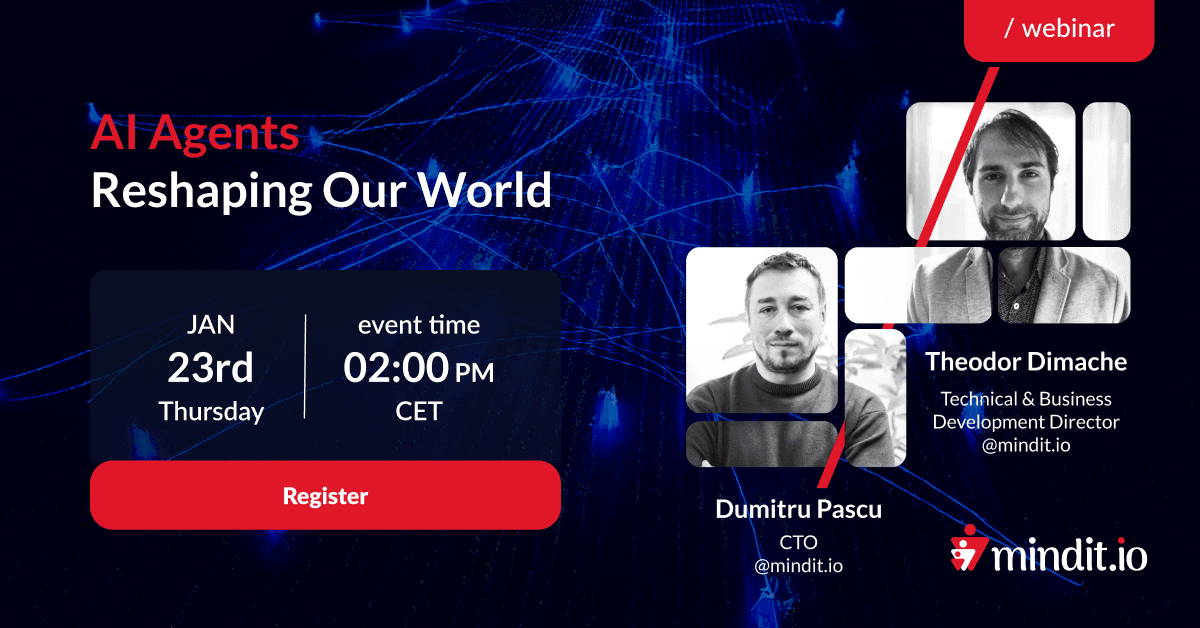Bill Gates has been thinking about the future of computing technology for decades. As the co-founder of Microsoft, he helped bring personal computers into the mainstream and saw firsthand how software evolved from the MS-DOS days to the graphical interfaces of Windows.
He sees artificial intelligence agents as the next platform that will transform how everyday people interact with computers. While AI bots like Clippy have existed in limited forms before, Gates argues that truly intelligent agents are now becoming possible thanks to advances in natural language processing, personalization, and AI capabilities.
Unlike previous software that required users to learn applications for specific tasks, AI agents will allow people to simply describe what they want to accomplish in plain English. The agent will then leverage its deep understanding of an individual’s preferences, relationships, and context to take actions and make recommendations tailored to them.
Agents will have a profound impact on our day-to-day lives – everything from planning a vacation to helping manage our health. He also foresees sweeping ramifications for the technology industry itself as coding and design skills become less essential for creating new apps and services. However, realizing this future will require overcoming challenges around privacy, security, and ethics.
What are AI Agents?
An AI agent is software that can accomplish tasks and provide services to a user based on an understanding of the user’s preferences, relationships, and past behavior. Agents are proactive and adaptive – they can make suggestions without being prompted, and improve over time by learning from interactions with the user.
Agents are more advanced than current AI assistants like Siri or Alexa. Those are limited bots that can only operate within a single app and don’t maintain memory or a profile of the user. Agents can operate across applications and remember details about a person in order to provide personalized help.
Some examples of current AI agent technology:
- X.ai schedules meetings by communicating with people through email while representing you. It learns your preferences and relationships over time.
- Anthropic’s Claude chatbot maintains long conversations and a memory of past interactions. It aims to feel more humanlike.
- In the future, AI agents will book travel, provide healthcare advice, tutor students, and more based on personalized understanding of an individual.
How Agents Will Help with Healthcare
Today, AI’s main role in healthcare is to help with administrative tasks. But the real shift will come when agents can help patients do basic triage, get advice about how to deal with health problems, and decide whether they need to seek treatment.
These “clinician-agents” will provide basic triage services, give advice to patients about how to manage their health issues, and help determine if seeking medical treatment is necessary based on the symptoms. Patients will be able to have conversations with their healthcare agent to get suggestions on whether their condition merits seeing a doctor. For example, an agent could advise someone with flu symptoms to rest at home, drink fluids, and take over-the-counter medicine. Or it may suggest they need to visit an urgent care for testing and treatment.
This will expand access to basic medical guidance for many people who currently don’t have it, especially those in poor countries who never get to see a doctor at all. Healthcare agents will be able to provide simple triage and advice to improve health outcomes. Of course, they won’t be perfect and will sometimes make mistakes. But on balance, they will help many people who today have no access to any medical guidance.
How Agents Will Help with Mental Health
Mental health care is an area where agents will make services available to many more people. Currently, weekly therapy appointments are out of reach for a lot of individuals. However, there is a significant unmet need, as many people would benefit from therapy but don’t have access to it. For example, research by RAND found that half of all U.S. military veterans in need of mental health services don’t receive them.
AI agents well-trained in mental health care will substantially lower costs and make therapy much easier to obtain. Apps like Wysa and Youper offer a glimpse of what’s coming with chatbots focused on mental health. However, agents will go much further. With permission to access information about your life experiences and relationships, an agent will be able to understand your personal history. It will be available when you need it, tirelessly patient and empathetic. With consent, it could even track physical signals via your smartwatch, like an accelerated heart rate when discussing an issue with a boss, and recommend seeing a human therapist.
Don’t miss our next webinar “AI Agents Reshaping Our World”!
Learn how AI agents are transforming Swiss industries with insights on:
Latest industry applications
Tech challenge solutions
Human-AI collaboration
Implementation strategies
How Agents Will Help with Education
Education is another area where AI agents will have a big impact. For years, we’ve talked about how software can personalize lessons for students and free up teachers’ time. Now, we’re finally starting to see this happen in a major way.
The current leader in AI tutoring is Khan Academy’s text-based bot called Khanmigo. It can tutor students in subjects like math, science, and humanities by explaining concepts and generating practice problems. Khanmigo can also help teachers with tasks like creating lesson plans. Text bots like this are just the first wave though. AI agents will open up far more learning opportunities.
For example, most families can’t afford private tutors to supplement classroom work. But if agents can capture what makes human tutors effective, they could provide that kind of 1-on-1 support to every student who wants it. An agent that knows a student enjoys Minecraft and Taylor Swift could use those interests creatively to teach math and writing skills. With graphics, sound, and personalization, the learning experience will be richer than today’s text bots can provide.
AI agents have huge potential to customize education and take over administrative tasks so teachers can focus on student relationships and instruction. We’re on the cusp of major improvements in both accessibility and quality of education thanks to this technology.
How Agents Will Boost Productivity
Personal AI agents will be invaluable for boosting productivity in everyday life. They will help individuals with various tasks and do them independently if desired. Companies will be able to make agents available for employees to consult directly, and have them be part of every meeting so they can answer questions.
Whether working in an office or not, your agent will help you the same way personal assistants support executives today. If you have an idea for a business, an agent can help write up a business plan, create a presentation, and even generate images of your potential product.
Agents won’t just make recommendations – they will help you act on them. For example, if you want to buy a camera, your agent will read reviews and summarize them for you, recommend specific models, and place the order once you decide.
Your agent will also remember personal details that normally take mental energy for you to keep track of. If a coworker just had surgery, your agent will know to offer sending flowers and can place the order. If you want to meet up with an old friend, the agent will coordinate schedules and remind you of recent life events before your meeting.
The agent will function as a dedicated assistant to offload menial tasks and enhance productivity. Companies will have an incentive to develop great agents that truly work on the user’s behalf.
How Agents Will Aid Entertainment and Shopping
Already, AI can help you pick out a new TV and recommend movies, books, shows, and podcasts. Likewise, a company Bill Gates has invested in, recently launched Pix, which lets you ask questions and then makes recommendations based on what you’ve liked in the past. Spotify has an AI-powered DJ that not only plays songs based on your preferences but talks to you and can even call you by name.
Agents won’t simply make recommendations; they’ll help you act on them. If you want to buy a camera, you’ll have your agent read all the reviews for you, summarize them, make a recommendation, and place an order for it once you’ve made a decision. If you tell your agent that you want to watch Star Wars, it will know whether you’re subscribed to the right streaming service, and if you aren’t, it will offer to sign you up. And if you don’t know what you’re in the mood for, it will make customized suggestions and then figure out how to play the movie or show you choose.
Impact on the Tech Industry
Agents will have a profound impact on the software industry, bringing about the biggest revolution in computing since we transitioned from typing commands to tapping on icons.
In the tech world, we refer to the underlying technologies that applications are built on as platforms. Operating systems like Android, iOS and Windows are examples of platforms today. Agents are poised to become the next major platform.
To create a new application or service, developers won’t need to know how to code or design graphics. They’ll simply tell their agent what they want to build. The agent will be able to write the code, design the look and feel of the app, create a logo, and publish it to an app store. This will completely democratize app development.
Rather than needing specialized technical skills, anyone with a good idea will be able to bring an app or service to life by partnering with an agent. The low barriers to entry are likely to spur an incredible wave of innovation and competition in the industry.
Technical Challenges
Before the agent technology described becomes widespread, the industry needs to work through some key technical hurdles.
Data Structure
What should the underlying database look like for a personal agent? It needs to be able to capture nuances about someone’s interests and relationships. At the same time, it needs to quickly retrieve that information to make recommendations while still maintaining privacy. Emerging data storage formats like vector databases may be better suited for AI-generated data.
Privacy
Users need assurance that their personal data is only being accessed and shared according to their preferences. The industry needs clear protocols for what information agents can access and share.
Accuracy
Accuracy is critical, especially for health agents where mistakes could be life-threatening. More work is needed to prevent hallucinations and bias in agent responses. Extensive testing and validation is required to ensure agents don’t provide harmful information.
Privacy and Other Big Questions
As all of this comes together, the issues of online privacy and security will become even more urgent than they already are. You’ll want to be able to decide what information the agent has access to, so you’re confident that your data is shared with only people and companies you choose.
But who owns the data you share with your agent, and how do you ensure that it’s being used appropriately? No one wants to start getting ads related to something they told their therapist agent. Can law enforcement use your agent as evidence against you? When will your agent refuse to do something that could be harmful to you or someone else? Who picks the values that are built into agents?
There’s also the question of what an agent should and should not share. If your agent helps you write emails for work, it will need to know not to use personal information about you or proprietary data from a previous job.
In the distant future, agents may even force humans to face profound questions about purpose. Imagine that agents become so good that everyone can have a high quality of life without working nearly as much. What would people do with their time? Would anyone still want to get an education when an agent has all the answers? Can you have a safe and thriving society when most people have a lot of free time on their hands?
Don’t miss our next webinar “AI Agents Reshaping Our World”!
Learn how AI agents are transforming Swiss industries with insights on:
Latest industry applications
Tech challenge solutions
Human-AI collaboration
Implementation strategies









































